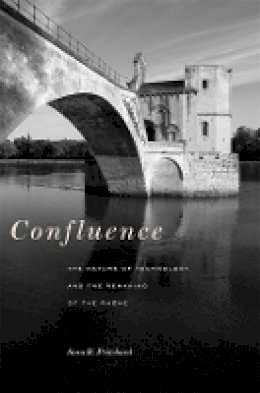
Confluence: The Nature of Technology and the Remaking of the Rhône
Sara B. Pritchard
Because of its location, volume, speed, and propensity for severe flooding, the Rhône, France’s most powerful river, has long influenced the economy, politics, and transportation networks of Europe. Humans have tried to control the Rhône for over two thousand years, but large-scale development did not occur until the twentieth century. The Rhône valley has undergone especially dramatic changes since World War II. Hydroelectric plants, nuclear reactors, and industrialized agriculture radically altered the river, as they simultaneously fueled both the physical and symbolic reconstruction of France.
In Confluence, Sara B. Pritchard traces the Rhône’s remaking since 1945. She interweaves this story with an analysis of how state officials, technical elites, and citizens connected the environment and technology to political identities and state-building. In the process, Pritchard illuminates the relationship between nature and nation in France.
Pritchard’s innovative integration of science and technology studies, environmental history, and the political history of modern France makes a powerful case for envirotechnical analysis: an approach that highlights the material and rhetorical links between ecological and technological systems. Her groundbreaking book demonstrates the importance of environmental management and technological development to culture and politics in the twentieth century. As Pritchard shows, reconstructing the Rhône remade France itself.
Product Details
About Sara B. Pritchard
Reviews for Confluence: The Nature of Technology and the Remaking of the Rhône
Michael D. Bess, author of The Light-Green Society: Ecology and Technological Modernity in France, 1960-2000 Pritchard has written an outstanding interdisciplinary study of the efforts to manage the Rhône River since 1945. In so doing, she provides the reader with a perceptive model of the 'envirotech' approach toward understanding complex phenomena involving technology and society.
Joel Tarr, Carnegie Mellon University Pritchard has recovered the fascinating story of France's massive, half-century mobilization of state-of-the-art technological and ecological know-how in transforming the nation's largest river – the unruly Rhone – into a futuristic valley of economic productivity and recreational pleasure.
Leo Marx, Massachusetts Institute of Technology Pritchard examines how the development of the Rhône River has been integral to the modernization of post-WW II France...Expertly linking ecology and technology to the political and cultural history of France, Pritchard illustrates how the Rhône is emblematic of the processes through which "technologies and strategies of environmental management materialized France as a nation in the territorial space declared within its borders." To this end, the importance of the river's value in areas such as hydroelectricity, agriculture, nuclear energy, and industrialism went well beyond the economic realm. Instead, these uses were derived from discursive and material visions at the very core of national identity and the project of nation building.
A. C. Stanley
Choice
